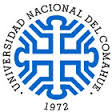El debate acerca de las narraciones del yo es una disquisición recurrente en el ámbito de la crítica y la teoría literarias; se cuestionan los alcances del discurso para configurar la representación del sujeto, lo que implica reflexionar acerca de si éste posee o no una consistencia anterior a la del propio acto lingüístico. En este marco, la autobiografía y la autoficción se erigen como dos polos extremos: entre la empiria y la fabulación, entre la confianza en la representación plena característica de las estéticas tradicionales- y el dilema de la falacia referencial –instalado a partir de las vanguardias. Este artículo se focalizará en Manual del distraído, de Alejandro Rossi, para intentar demostrar que su condición de libro de misceláneas, es decir, conjunto de textos diversos sin filiaciones temáticas ni genéricas, se erige como un modo delegado de autorepresentación, superando estas dicotomías teóricas. El objetivo será establecer cómo esta obra de Rossi, al rehuir de los requerimientos discursivos cristalizados, emprende una tarea sustituta de los proyectos autobiográficos tradicionales cuyo potencial referencial se cuestiona.
Para esto, el artículo analizará las formas textuales mediante las que se develarán elecciones literarias, disquisiciones culturales y momentos vivenciales, constituyentes metonímicos que forjan una derivada continuidad entre el yo real y el yo textual. Se considerará que, así construida, la identidad se presenta como una propuesta fundada no ya en la correspondencia o semejanza empírica, sino en la serie de sentidos y estrategias discursivas a partir de los que el yo interviene en el espacio de la escritura.
The discussion about the life writing is a recurrent disquisition in the ambit of literary criticism and theory. The problem focuses on questioning the scope of discourse to configure the representation of the subject, which implies reflecting on whether he possesses or not an anterior consistency, previous to the liguistic act it self wich the author uses to appear in the text. In this context, autobiography and autofiction stand as two extreme poles: between experience and fable, between trust in full representation -characteristic of traditional aesthetics- and the dilemma of the referential fallacy -installed by the literary vanguards. This paper will focus on the Manual del distraído, of Alejandro Rossi, to try to prove that his condition of miscellaneous book, that is to say, variety of texts without thematic or generic affiliations, is presented as a delegated mode of auto-representation overcoming these theoretical dichotomies. The objective will be to establish how this production of Rossi, in avoiding the conventional discursive requirements, undertakes a substitute task of the traditional autobiographical projects whose reference potential is questioned. With this purpose, the article will focus on the analysis of textual forms through which literary elections will be exposed, cultural disquisitions and experiential moments, metonymic constituents that forge a derivative continuity between the real and textual subject. It will be considered that, thus constructed, identity is presented as a proposal based not on empirical correspondence or similarity, but on the series of discursive senses and strategies from which the self intervenes in the space of writing.


